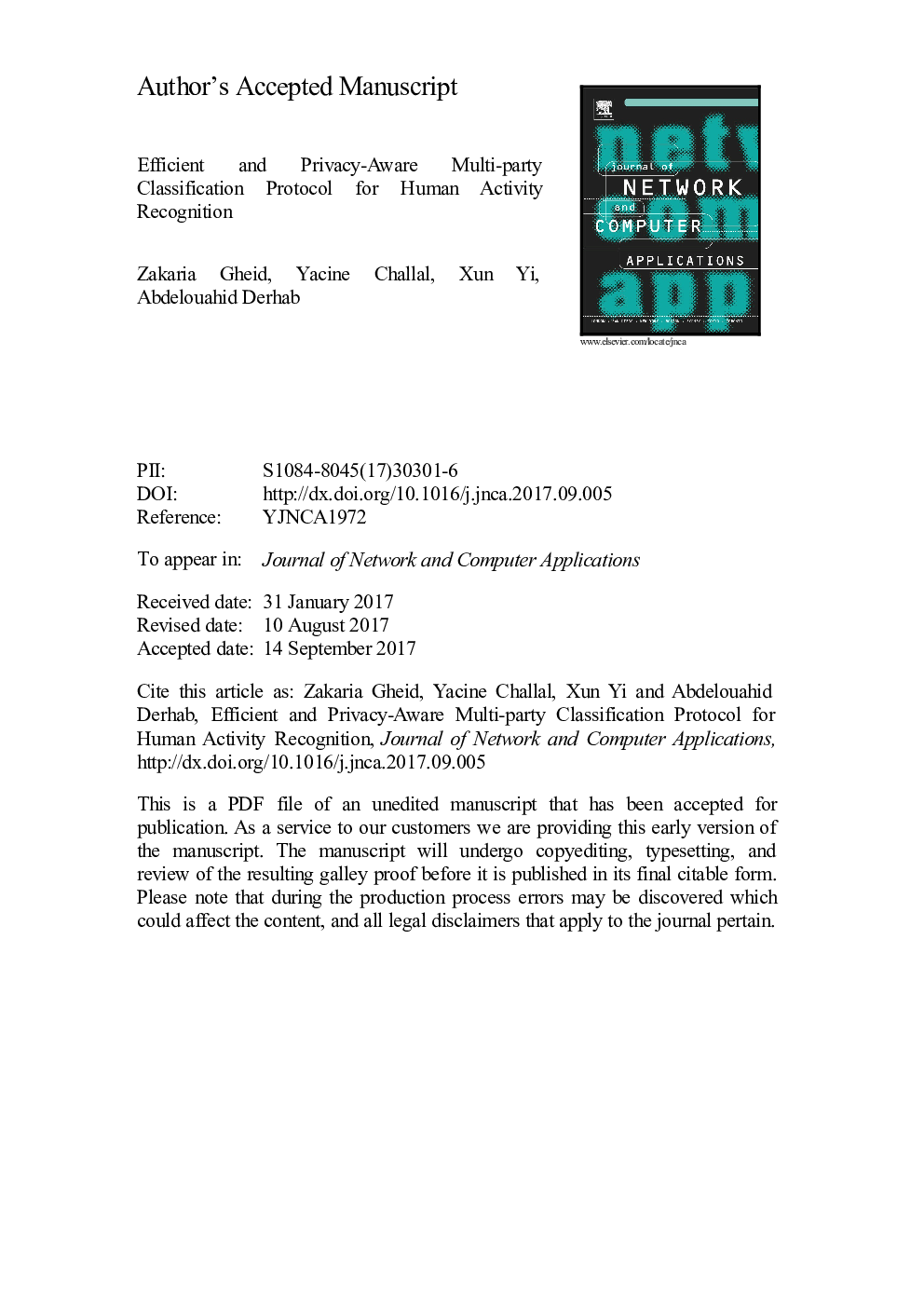| Article ID | Journal | Published Year | Pages | File Type |
|---|---|---|---|---|
| 4955799 | Journal of Network and Computer Applications | 2017 | 22 Pages |
Abstract
Human activity recognition (HAR) is an important research field that relies on sensing technologies to enable many context-aware applications. Nevertheless, tracking personal signs to enable such applications has given rise to serious privacy issues, especially when using external activity recognition services. In this paper, we propose (Î -Knn): a privacy-preserving version of the K Nearest Neighbors (k-NN) classifier that is mainly built on (Î -CSP+): a novel cryptography-free private similarity evaluation protocol. As a sample application, we consider a medical monitoring system enhanced with a HAR process based on our privacy preserving classifier. The integration of the privacy preserving HAR aims to improve the accuracy of the clinical decision support. We conduct a standard security analysis to prove that our protocols provide a complete privacy protection against malicious adversaries. We perform a comparative performance evaluation through several experiments while using real HAR system parameters. Experimental evaluations show that our protocol (Î -CSP+) incurs a low increasing overhead (37% in Online classification and 50% in Offline classification) compared to PCSC, a representative state-of-the art protocol, which incurs 3600% and 4800% in online and offline classification respectively. Besides, Î -CSP+ provides a stable and efficient response time (W=0.0x ms) for both short and long duration activities while serving up to 1000 clients. Comparative results confirm the computational efficiency of our protocol against a competitive state-of-the-art protocol.
Related Topics
Physical Sciences and Engineering
Computer Science
Computer Networks and Communications
Authors
Zakaria Gheid, Yacine Challal, Xun Yi, Abdelouahid Derhab,
